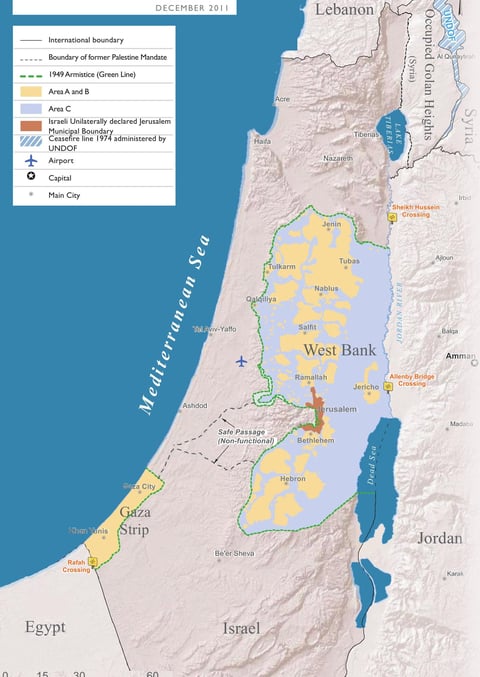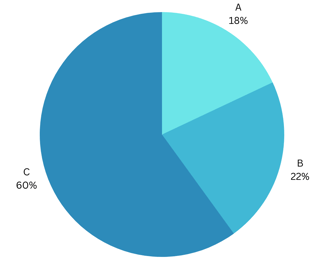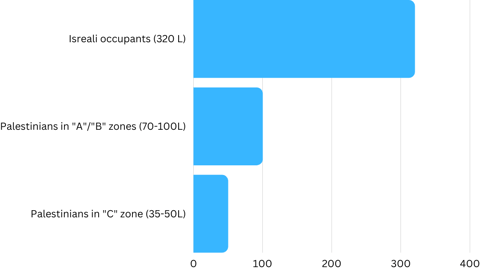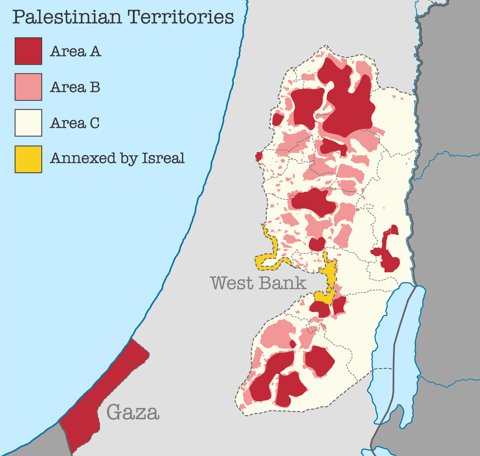Short reflection on Israeli legal status of the occupied territories
International law and the complex state of limbo between Israel and Palestine


Welcome back to my blog! The scope of this post is not to take part in what looks like a never-ending conflict in the Middle East, nor is it to go through the history of Israel. In this blog, the thread among all the topics is the research of a structured way to get oriented in very complex situations.
In the case of the Israeli-Palestinian conflict, where to start? Who to listen to? Western and Middle-East media clearly appear skewed stating different perspectives. Social media are also a dangerous tool, which if used as a source of information has the final effect of polarizing people. Paraphrasing one of the greatest thinkers of our times, Noam Chomsky, social media trap you in the "filter bubble" reinforcing your position, more than opening your mind to different points of view.
An effective way to approach the basics, in my opinion, is to take an economist approach. We should then look at the incentives of these platforms:
Newspapers: they are incentivized to sell more news. This means that based on their readers' profiles, they tend to talk about what their readers find compelling.
Social media: their algorithms are quite complex and dynamic, but basically they propose topics, videos, and photos that they think you would like, to increase your usage time.
I am not saying that newspapers and media are not good sources of information, but as readers, we have to put some effort into gathering all this information to get the best possible view we can. My only recommendation here is to gather your information from official sources, not incentivized to profit from the amount of time you spend on their platform.
After this rather long introduction, I'd like to talk about the legal status of West Bank, East Jerusalem included, and Gaza, together with Israel's rights and obligations towards these territories.
I base this post on three main official UN documents (free for download for anyone on the United Nations digital library website).


For the sake of visuals, I will base my approach on this map. This map highlights the Palestinian-occupied territories, which are divided into the West Bank (having a border with Jordan on the east side) and the Gaza Strip (with a border with Egypt on the southwest). But first of all, some definitions. What is an occupied territory? What legal implications does it carry?
Palestine is recognized as an occupied territory. An occupied state or territory refers to a region that is under the effective control of a foreign power but where the sovereignty has not been legally transferred. This concept is rooted in international law, particularly in the Hague Regulations and the Geneva Conventions.
According to Article 42 of the Hague Regulations of 1907, a territory is considered occupied when it is placed under the authority of a hostile army. The occupation is only considered legitimate if the occupying power can ensure public order and safety while respecting the laws in force in the country
The Fourth Geneva Convention (1949) further elaborates on the rights and protections afforded to civilians in occupied territories. Article 2 of the Convention states that it applies to cases of partial or total occupation of a state's territory, even if the occupation meets with no armed resistance.
So, basically, Palestine is considered by international law a sovereign country, occupied by Israel's hostile army.
What are the responsibilities and the restrictions to Israel over these territories? Normally, the occupying power needs to ensure public order, safety, and respect for the laws in force in the country. The occupying power is also restricted from exploiting the resources of occupied territory for its benefit.
Based on these definitions, the UN openly condemns Israel for not complying with international laws, defining many of its acts on these territories as illegal.
Where is the catch? There's a small detail called Hamas.
Hamas is a Palestinian Sunni-Islamic fundamentalist militant organization. It was founded in 1987 to fight the Israeli rule in the occupied territories. Fighting literally means that Hamas is openly committed to establishing an Islamic state in historic Palestine and eliminating the state of Israel (even if arguably, they appear willing to accept a Palestinian state based on 1967 borders).
In 2006 Hamas won the majority of seats in Palestinian legislative elections, with consequent tensions that broke into a violent conflict in Gaza, in 2007. Since then, the Gaza Strip has been governed by Hamas and the West Bank by the Palestinian Authority.
In light of this, Israel considers Hamas a terrorist organization, a view shared with several Western countries (US, EU, Canada, etc..). Israel then appears to refuse the applicability of the Geneva Conventions in these territories and refuses to collaborate with any investigations of non-compliance with international law until the international community doesn't condemn the fire of beyond 4300 missiles (now end of Oct 2023, well beyond 6000) from a terroristic organization towards Israeli's military and civil targets.
We suddenly understand where the difficulty stands. Israel feels entitled to stretch the international laws as part of the occupied territories (Gaza Strip) is led by a terrorist organization. Speculation would argue that Hamas was born due to the conditions Palestinians are forced to live in, other speculations are convinced that Hamas is financed by Iran to destroy Israel. The result is that the Gaza Strip is not recognized the rights of an occupied state according to international law and Israel would continue to hold possession of airspace, territorial waters, border crossings, civil infrastructure including the electricity grid, and Palestinian census management.
How about the West Bank? Officially, Hamas is not present in the West Bank. But still, Israel claims that local Palestinian militant groups in the West Bank are affiliated with other fundamentalist terrorists like Fatah.
West bank is divided in three zones: A, B and C.


These zones are respectively 18%, 22%, and 60% of the West Bank area.
The "A" zone is under political and military control of Palestine authority and Israelis are not allowed in. Ramallah, Bethlem, and Jericho are part of this group. Also, Gaza Strip is considered part of the "A" zone, although is not under Palestinian authorities (but rather Hamas, as previously mentioned).
The "B" zone is subject to Palestinian civil law, but in reality, Israel has complete military control over this area. The "B" zone comprehends the majority of Palestinian agricultural areas and hosts 440 villages.
A and B zones are so-called "islands", as they're enclaves separated from Israeli-occupied areas and the "C" zone.
The "C" zone (again, 60% of the West Bank) has been under Israeli control since 2014. This zone is home to the majority of Palestine's natural resources. Israeli control, means also that Israel is giving construction permits in this area, and since 2014 (until 2022), only 1 construction permit has been given to Palestinians. Over 70% of the villages are not connected to the water networks, and 30% are illegally served.
To add some complication, let's also mention East Jerusalem. East Jerusalem has been considered an occupied territory since 1967. In 1980, Israel declared UNIFIED Jerusalem as its capital. This declaration has not been recognized by the international community (except by Trump in 2017).
In 2022, 40% of East Jerusalem residents are Israeli, in irregular homes (based on international law), mostly previously owned by Palestinian citizens.
A small parenthesis: in 1993 Oslo's Accords were signed by Bill Clinton (then U.S. President), Yasser Arafat (Palestinian Liberation Organization Chairman), and Yitzhak Rabin (then Israeli Prime minister). These accords established a Palestinian authority and planned a gradual withdrawal of Israel from the Gaza Strip and West Bank.
The result? Based on a UN report of 2017, Israeli residents in occupied areas have doubled since Oslo's accords. The illegal (based on international law) occupation and exploitation of natural resources have inevitably fragmented Palestine and hindered its growth.
Further in the report, the UN states a "gradual takeover and designation of land for exclusive Israeli use". The areas taken over are assigned as "state land", used for military use, archeological or natural parks. As a result, 70% of the "C" zone is off-limits to Palestinian construction projects.
Basically, Israel is slowly allegedly expanding its territory above the legally legitimate ones, often through the use of violence.
Also the access to water is somehow restricted as below:


The recommended daily water access is 100L per person.
In 2018, 110 UN members recommended (very important, not enforced) Israel to apply the following measures:
1) stop Palestine occupation
2) stop expanding its territories
3) stop forced evictions
4) stop "political" incarceration (especially for children)
5) stop movement restrictions
6) allow Palestinians to access to their own resources
7) stop discriminatory policies
This list could go on for many more pages, but I will stop with the latest happenings. As the whole world knows by now, on 7th October 2023, Hamas led a surprise attack on Israel by land, sea, and air, striking more than 2400 missiles and causing more than 1300 civilian deaths. As a response, Israel is striking back, by bombing down the Gaza Strip, blocking access to water, electricity, and fuel, causing thousands of civilian victims.
From what I can see, the world is polarizing on this matter, taking strong positions on either side. The arguments I hear are very different and many times inaccurate.
Israel might have reasons to expand and limit the resources to the occupied states if they really worry about terroristic attacks from Hamas and Jihadist-affiliate groups in the West Bank, financed by Iran. At the same time, applying these restrictions, makes these areas unlivable, so more keen to violence due to desperation.
It's the egg and the chicken issue. Palestinians are then also incentivized to fight, not only due to the unlivable conditions, segregation, and discrimination but also due to the loss of trust in international authorities. To add complexity, there's also the net distinction between Hamas and Palestinians in the debate.
As always, the sad part is that the common citizens are the ones who suffer the situation the most.
I wrote this post to encourage everyone to inform themselves in detail about complex issues. In a free world, anyone is allowed an opinion, even if not informed. To have an informed opinion though, I always recommend challenging the common knowledge, understanding the mechanisms, and generating your own opinion. Social media and newspapers are not enough to do so. Also, opinions based on episodic anecdotes are very dangerous. We could write a book just on the Israeli AND Palestinian bad deeds, which will all be true but won't give a real big-picture vision.
Step back, try to understand how the machine works, and generate the most educated opinion you can. The complexity of human nature is its beauty. Complex nature deserves a dedicated approach.
I wish you a great journey.


Map of West Bank and the Gaza Strip
Map of A, B and C zones
Daily water access per person
The Western Wall (Wailing Wall), Jerusalem
